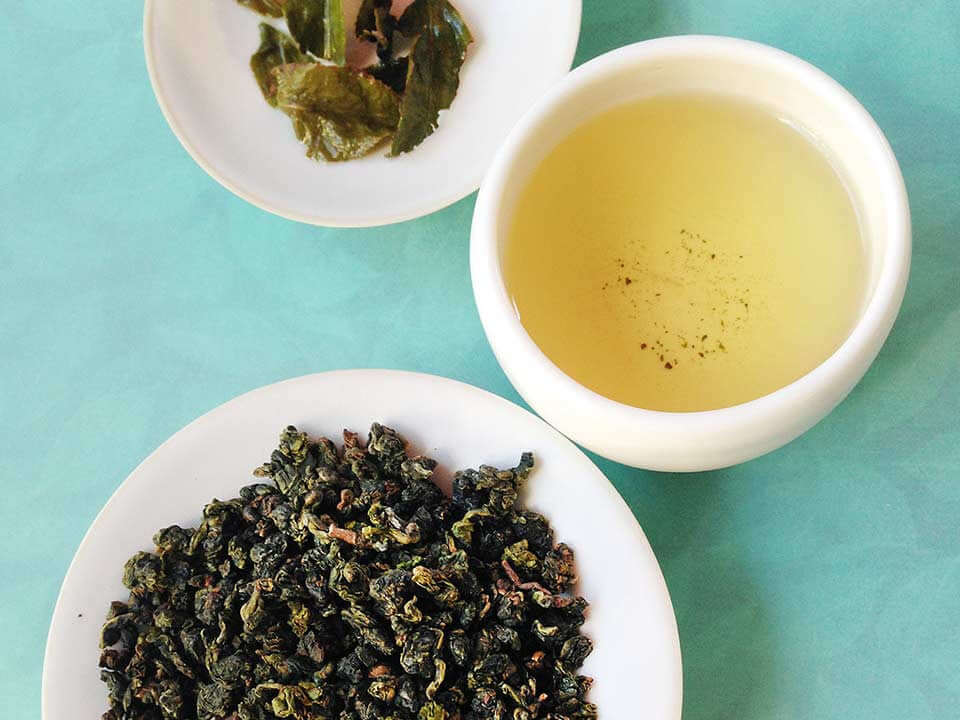Discovering Oolong Tea Benefits and Brewing Tips
Posted by JESSIE X

In the world of tea, there's a hidden gem that's caught the attention of connoisseurs and health enthusiasts alike, oolong tea. With its unique flavour profile and an array of health benefits, oolong tea stands as a testament to the rich diversity of tea culture.
Do you mean green teas or black teas? The answer is neither and both. Oolong tea bridges the gap between these two classics, offering a delightful taste and a plethora of advantages.
In this journey through the world of oolong tea, we'll delve deep into the many oolong tea benefits. Whether you're a seasoned tea drinker or just starting to explore the world of tea, this guide will equip you with the knowledge and brewing tips you need to make the most of this remarkable beverage. So, let's steep ourselves in the enchanting world of oolong tea.
Understanding Oolong Tea: The Basics
Before diving into the benefits, let's get to know our star player better. Oolong tea falls somewhere between green and black teas, thanks to its unique processing method. It's derived from the leaves of the Camellia Sinensis plant, the same plant that gives us black and green teas.
What sets oolong apart is the partial oxidation process it undergoes. This oxidation process gives oolong tea its distinct flavour and colour profile, making it a delightful choice for those seeking a balanced tea experience.
Oolong Tea Benefits:
Now, let's dive deeper into oolong tea benefits:
Unlocking the Potential: Oolong Tea and Diabetes.
Let's kick things off with a hot topic: diabetes. Many studies have suggested that tea, in general, may help protect against diabetes and its complications by tackling insulin resistance and reducing inflammation. While most of this research has focused on green and black tea, oolong tea has also shown some promising signs.
A study from 2021 and a review from 2019 both highlighted the links between regular tea consumption, improved blood sugar management, and a reduced risk of type 2 diabetes. However, it's important to note that oolong tea hasn't been as extensively studied. Still, an older study hints at the potential of oolong tea in lowering plasma glucose levels in patients with type 2 diabetes.
But hold on, there's a plot twist! A 2011 study involving around 5,000 Japanese men suggested that oolong tea consumption might predict the onset of diabetes. So, while the research isn't crystal clear, there's certainly an intriguing connection between oolong tea and diabetes that warrants further exploration.
A Cup of Wellness: Oolong Tea and Heart Health
Now, let's talk about matters of the heart. Drinking tea, packed with antioxidants, can be a heart-healthy choice. Regular tea consumption has been linked to lower blood pressure, improved cholesterol levels, and a reduced risk of heart disease. And guess what? Oolong tea is no exception.
In a massive 2003 study, those who sipped more than six cups of tea daily enjoyed a "significantly" lower rate of coronary heart disease.
Moreover, a study in Japan observed that men who consumed 8 ounces or more of oolong tea daily had a whopping 61% lower risk of heart disease.
But here's a caveat: oolong tea contains caffeine, which can, in some cases, slightly raise blood pressure. However, research on the link between caffeine and hypertension has yielded inconsistent results. So, if you're concerned about caffeine and blood pressure, more studies are needed to draw a definitive conclusion.
Shedding Pounds with Oolong: Tea and Weight Loss
If you're trying to shed a few pounds, brewed oolong tea might become your trusty sidekick. Tea and weight loss have a long-standing relationship, with various studies pointing to the bioactive compounds in tea as potential fat-busters.
While antioxidants in tea were initially credited for their role in weight loss, recent research suggests that tea's ability to enhance enzyme inhibition and interact with gut microbiota may be the true secret behind its weight management magic.
When it comes to oolong tea itself, a recent animal study found that oolong tea extract could directly increase fat oxidation, helping to reduce body fat. So, if you're looking for a natural way to complement your weight loss journey, oolong tea might be just what you need.
Tea for Thought: Oolong and Brain Function
Last but certainly not least, let's discuss the impact of oolong tea on your brain. Consuming oolong tea has been associated with maintaining brain function, improving memory, lowering high blood pressure and potentially shielding against age-related cognitive decline. Several components of tea, including caffeine and theanine, play key roles in this regard.
Caffeine, found in tea, can boost the release of norepinephrine and dopamine, two brain messengers believed to enhance mood, attention, and overall brain function.
Additionally, theanine, an amino acid present in tea, can increase alertness and reduce anxiety. A 2014 review even reported that tea containing both caffeine and theanine led to heightened alertness and attention within the first couple hours after consumption.
Brewing the Perfect Cup of Oolong Tea
Now that you're intrigued by the potential health benefits of oolong tea, let's talk about how to brew the perfect cup. Brewing oolong tea is an art that involves the right combination of water temperature, steeping time, and tea leaves.
Here's a simple guide to get you started:
Ingredients:
- Oolong tea leaves
- Fresh, filtered water
Steps:
Choose Your Oolong: There are various types of oolong teas available, each with its unique flavour profile. Experiment with different varieties to find your favourite.
Boil Water: Heat fresh, filtered water to about 185°F (85°C). This temperature is ideal for most oolong teas, but you can adjust it slightly based on your preference.
Measure Tea Leaves: Use approximately one teaspoon of oolong tea leaves for every 8 ounces (240 mL) of water. Adjust the amount based on your taste preferences.
Steep with Care: Place the tea leaves in a teapot or infuser and pour the hot water over them. Allow the tea to steep for 3-5 minutes, but adjust the steeping time to achieve your desired strength.
Savour the Flavor: Once your tea has steeped, pour it into a cup and take a moment to appreciate the aroma and taste. Oolong tea offers a delightful balance of floral, fruity, and earthy notes that can be enjoyed plain or with honey or lemon.
Reuse Tea Leaves:Oolong tea leaves can often be steeped multiple times, so don't toss them after the first infusion. Experiment with different steeping times for subsequent brews to discover new flavours.
Conclusion
Drinking Oolong tea is not just a tasty beverage; it's a potential powerhouse of health benefits. While more research is needed to understand its effects fully, oolong tea holds promise for diabetes management, heart health, weight loss, and brain function. Why not make oolong tea a part of your daily routine?
SHARE:

AUSTRALIA'S FINEST LOOSE LEAF TEAS
Explore Australia's largest selection of Premium Teas & All-Natural Organic Herbal Blends.


